Open Science ambassadeurs
Heb je vragen over open access of open science? Neem contact op met een van de open science ambassadeurs bij de faculteiten.
Ben je een enthousiast en uitgesproken voorstander van open access en open science en wil je graag ambassadeur worden voor jouw faculteit of onderzoeksinstituut? Neem contact met ons op voor meer informatie.
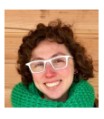
Gisel Barbieri
PhD candidate
Ambassador for Faculty of Philosophy
"I am committed to the global development of knowledge, and open science resonates with my motivation to contribute to positive social change through science. I believe that this positive change can be made possible through open science and knowledge infrastructures where researchers can fully exercise their academic freedom. My academic background in Philosophy and Organisational Psychology, combined with my professional experience, has provided me with the necessary skills for my current research work on surveillance in academic research and publishing platforms. Along with this research, I am happy to participate as an Open Science Ambassador to support the global development of knowledge that is freely accessible to all and free from data tracking practices."
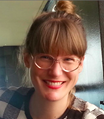
Sonja Billerbeck
Assistant Professor
Member of the Young Academy Groningen
Ambassador for Faculty for Science and Engineering
"Knowledge is powerful and the knowledge we create at institutions of higher education should be freely accessible to everyone – at the end it has been financed by the tax payer. We as scientists build on existing knowledge but also the general public, high-school teachers and other educators should be able to access scientific information and educate themselves. The pandemic and associated mistrust and fake news have shown how important it is that everyone gets access to scientific results, likely the most fact-based information that is out there. As such I want to advocate for open access, without it we limit the impact our research can have."
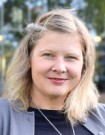
Jessica de Bloom
Professor
Ambassador for Faculty of Economics and Business
"Knowledge is powerful, and it belongs to everyone. Research, often funded by taxpayers, should not be hidden behind paywalls but made freely accessible to all. Open science enables scientists to build on each other’s work, while also allowing educators, policymakers, and the public to access reliable, fact-based information. Open access to scientific results ensures that accurate information reaches everyone who needs it. By sharing our knowledge openly, we maximize the impact of our work and foster trust in science. Ultimately, science is for society—not just for scientists. Open science helps us create a more transparent, collaborative, and inclusive future for research."
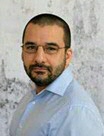
Matt Coler
Associate Professor & Research Programme Manager
Ambassador for Campus Fryslân
"I believe that knowledge developed in universities should be freely accessible to everyone, not hidden behind paywalls or commodified. Scientific knowledge should be public. My faculty, Campus Fryslân, is the newest faculty at the University and so is open to taking a fresh approach towards open access. I became an Ambassador to promote them in this mission."
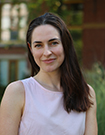
Sarahanne M. Field
Assistant Professor
Ambassador for the Faculty of Behavioural and Social Sciences
"For me, open science is just how I do research. I am privileged that my past early exposure to open science (in the last year of my bachelor programme in 2013), research context and environment allow this. For others though, engaging with open science is not so easy, and countless staff and students in our faculty need support to help them realise their interest in adopting open science practices, and forming their own thoughts and approaches to the open science movement as a whole. I'm more than happy to be someone who can be called upon to help meet this need for support, and I have amassed enough knowledge and skills that I think I can genuinely function well in the role of OS ambassador. I also am skeptical of blanket OS approaches, and am sensitive to the varying needs different disciplines have when it comes to opening up their research and making it more rigorous. In my mind, OS is a buffet and we should be encouraging researchers to adopt what works for them and not try to do it all. I think my own philosophy of OS is helpful to how I approach the role of ambassador, which is, in part, to increase the adoption of OS in the faculty as much as possible, across as many disciplines as possible - not just the quantitative psychological ones that are usually the first to adopt OS."
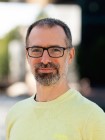
Davide Grossi
Associate professor
Ambassador for the Faculty of Science and Engineering
"It is high-time for academia to regain control about who should access its findings, and to divert resources away from extractive businesses and towards publishing forms that can truly benefit research communities worldwide."
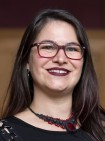
Antonija Grubisic-Cabo
Assistant professor
Ambassador for the Faculty of Science and Engineering
"Open science ensures that scientific research is accessible to everyone, regardless of publishing agreements. Scientists worldwide, as well as the general public, should have unrestricted access to scientific findings. This broad accessibility spreads knowledge, accelerates innovation, and leads to faster scientific and technological advancements.
Moreover, open access to scientific data plays a crucial role in fostering transparency and integrity in research. By making data openly available, future developments can be built on existing findings more efficiently. It also helps combat scientific misconduct by allowing others to verify results and detect instances where data has been manipulated or misrepresented.
Ultimately, open science promotes a more inclusive, ethical, and collaborative research environment. It strengthens trust in science, ensures fair knowledge distribution, and maximizes the positive impact of research on society. Removing barriers to information empowers researchers and the public alike to contribute to global scientific progress."
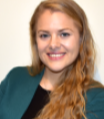
Vera Heininga
Assistant Professor
Ambassador for the Faculty of Behavioural and Social Sciences
"I feel lucky to have spent part of my career advancing Open Science. As chair of the Open Science Community Groningen, later as Open Science Programme Leader and Chief at the University of Groningen, and now as a board member of the Open Science programme of the University Groningen and Open Science Communities NL, I’ve learned that knowledge from research travels furthest when carried out as open as possible. Openness invites replication, sparks collaboration, and turns individual insights into collective breakthroughs.
That conviction shapes every project I take on. Currently, I’m helping build an AI-powered chatbot that makes open-science workflows effortless for busy researchers, co-developing the MiniManyLabs infrastructure to scale transparent experience-sampling studies, and running a citizen-science initiative on youth mental health.
None of this is solo work. Each milestone rests on generous collaborators, curious students, and engaged citizens. My role as an ambassador is to weave those efforts together,and make openness, collaboration, and innovation the norm rather than the exception."
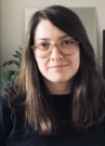
Yuliya Hilevich
Assistant Professor
Ambassador for the Faculty of Arts
"Academic research findings as well as data, which was used to draw them on, need to be accessible and transparent. I see these as the core principles of open science. This process, however, is often not straightforward and is bound to the 'conventions' of disciplines. As an ICOG (Faculty of Arts) ambassador, I am keen on promoting and co-developing routes for accessible and transparent research and data in the fields of humanities."
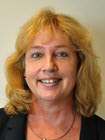
Ina Horlings
Professor
Ambassador for the Faculty of Spatial Sciences
"I consider it important that everyone, including non-academics, has access to knowledge without thresholds and paywalls.
Public engagement is one of the pillars of open science. This includes not just valorization and societal impact but also supports participatory research and citizen science, thus acknowledging non-academics as co-creators of new knowledge. "

Robert Inklaar
Professor
Ambassador for the Faculty of Economics and Business
"Too often, research is considered done when it is up on a publisher’s website, often behind a paywall that excludes most outside academia and even many inside. Yet as researchers, I feel that it is our duty to ensure that our research is widely available and easily accessible. A duty to all those others who may benefit, but also to ourselves, to reach the widest audience possible for our research. Working towards open access will be an important step to fulfilling that duty."
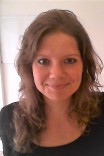
Lisette de Jonge-Hoekstra
Assistant Professor
Ambassador for the Faculty of Behavioural and Social Sciences
"Open Science is important to me because it strengthens research, also (or even especially) when resources are under pressure. I want to help scientists experience that open practices are not an extra burden but an important route to more accessible and robust research. My experiences in Open Science initiatives, which range from discussions on reproducibility to exploring Diamond Open Access and secure ways of sharing video data, have increasingly convinced me of the urgency and potential of these (and more) initiatives. By becoming an Open Science Ambassador, I hope to connect people, boost good ideas, and provide practical support."

Marijke Leliveld
Professor
Ambassador for the Faculty of Economics and Business
"I believe it is the responsibility of policy makers as well as of the scientific community at large to critically reflect on the status quo of the current publication process. Personally, I feel it is based too much on how the process "used to be" and that there is ample room for improvement with current technologies. We need to actively spur this discussion and being open access ambassador can be beneficial in that."
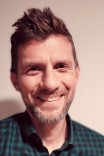
Mario Mauthe
Assistant Professor
Ambassador for the UMCG
"I strongly advocate that research data should be freely accessible to all; no paywalls, no barriers. We should build sustainable systems that let every scientist publish open access in any journal without weighing personal or grant budgets: institutional agreements, shared funds, repositories, and support that uncouple discovery from ability to pay. The research community has the responsibility to communicate our findings clearly and proactively to the public, to patients, and to their organizations. This should be done with care: transparent about what is known and unknown, realistic about timelines, and attentive to hopes and risks. Open science should advance trust and accelerate progress, without false or unrealistic promises."
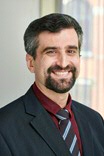
Panos Merkouris
Professor
Chair in Interpretation & Dispute Settlement in International Law
Ambassador for the Faculty of Law
"Articles, research and information being available only through subscriptions to costly and, by consequence de facto inaccessible to the vast majority of the public, databases, offers nothing more than perpetuate the stereotype of academics residing in their ivory towers. Open Access helps tear down this mythos, and enhances the discussion and engagement not merely with other academics, but with policy makers and the general public. As an open access ambassador, I hope to contribute to this gradual shift towards increased Open Access publication."

Esteban Morales Velasquez
Assistant Professor
Ambassador for the Faculty of Arts
"When embraced critically as an endeavor to strengthen the connection between science and society, open science is a powerful and necessary tool to recover public trust in academia and thrive for global equity and inclusion. With this belief at heart, I look forward to accompanying UG’s open science efforts. In this role, I aim to contribute to UG’s commitment to open science by centering questions of ethics, power, and inclusion."

Noémi Peter
Associate Professor
Ambassador for the Faculty of Economics and Business
" I think that researchers should have an active role in the discussion about open access. I find the accessibility of research results important. I find the quality of research and academic freedom even more important. Thus, I support measures which aim to increase accessibility without hurting academic freedom and the quality of research. For this reason I advocate self-archiving, a.k.a. green open access. This form of open access means that researchers make a copy of their manuscript available online."

Robert Pollice
Assistant Professor
Ambassador for the Faculty of Science and Engineering
"The phrase knowledge is power has long resonated with me. Knowledge is the core subject of science. Accordingly, I believe that open science empowers scientists and laypeople alike by overcoming secrecy and exclusivity, ultimately accelerating scientific progress. As an Open Science Ambassador, I seek to contribute to an open research community that shares scientific findings and their supporting evidence openly in order to maximize knowledge exchange and utilization."

Naomi de Ruiter
Assistant Professor
Ambassador for the University College Groningen
"The pillars of Open Science hold much promise, but there are also paradoxical challenges that I believe require more attention. First, Open Access promises to make academic knowledge accessible to society at large. Currently, publishing Open Access too often comes with high fees, which disincentivize smaller academic institutes to publish Open Access (as they may not have the monetary resources to pay these fees). Only when Open Access is truly open and free, will all academic output be accessible to society.
Second, initiatives like Open Data, Community Science and Open Notebooks, aim to stimulate a more transparent and collaborative academia. In practice, however, these initiatives can work to silence the voices of minorities, thus privileging the voices of researchers with more power and of dominant research practices and discourses. This initiative of Open Science can thus sometimes limit diversity and inclusion within the academic community.
I believe it is crucial that we further explore how the initiatives of Open Science can be further developed and improved, so that accessibility, transparency, and inclusivity in science can be truly realized. All voices within the academic community need to be heard, and these voices need to reach all corners of society."
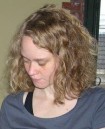
Anja Schüppert
Associate professor
Ambassador for the Faculty of Arts
"Research funded by the public should be accessible to the public. We are currently making significant strides in enhancing technical access for users. As an Open Science ambassador for the Faculty of Arts, I am also committed to advocating for linguistic accessibility. Effectively communicating our research to both scientific peers and the wider public requires thoughtful attention to language use, ensuring clarity and inclusivity for diverse audiences."
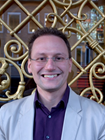
Lorenzo Squintani
Professor
Ambassador for the Faculty of Law
"Science is of mankind not of scientists: all publications coming from scientists should be open access as internal and external dialectic process are essential to develop science."

Titus Stahl
Associate Professor
Ambassador for the Faculty of Philosophy
"The transition towards open access can only be achieved collectively. Therefore, scholars should join forces and take back control over the publication process. Open access allows scholars to contribute to democratic debates without limitations and the transition towards scholar-run open access journals strengthens academic freedom and researchers’ independence."
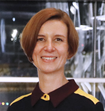
Marie-José van Tol
Professor
Ambassador for the UMCG
"I'm convinced that open research practices and being as transparent as possible is how we as scientists collaboratively can make progress in solving complex societal questions. We also have the obligation to make our knowledge available to everyone worldwide and should allow researchers from all around the world to share their knowledge openly. This way, we can become aware of biases in our knowledge and contribute to scientific progress globally. I would also like to ensure that early career researchers, often the motor of open research, are properly recognized and rewarded for their efforts.
In this role I would like to bring open research to all relevant local, national, and international tables, including our research schools, institutes, and national and European science advice mechanisms that I'm involved in."
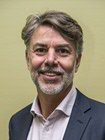
Todd Weir
Associate Professor
Ambassador for the Faculty of Religion, Culture and Society
"Open Science is about getting the balance right between two ambitions: to open scientific research to a wider audience and to sustain the ecosystem of academic publishing that has developed over the decades. How in other words, do we really get the knowledge produced at universities into the hands (or smartphones) of non-academic readers and viewers, without undermining the quality and the research networks sustained by traditional journals? Open Science requires scholars to rethink how and for whom they write and it requires institutions to stimulate the modification of existing and the creation of new channels for knowledge transfer."
